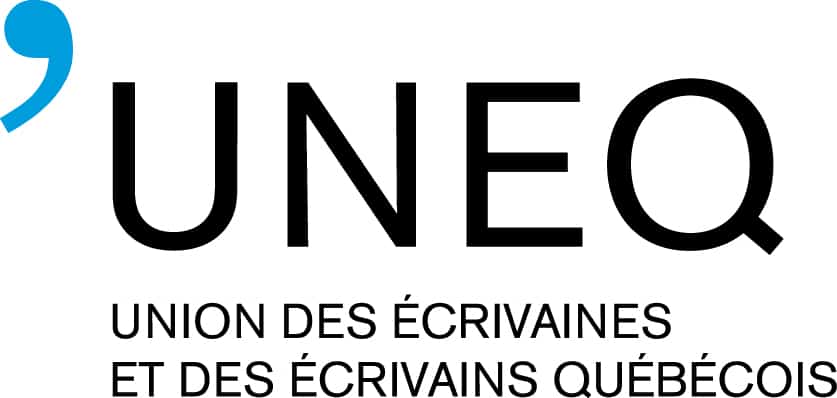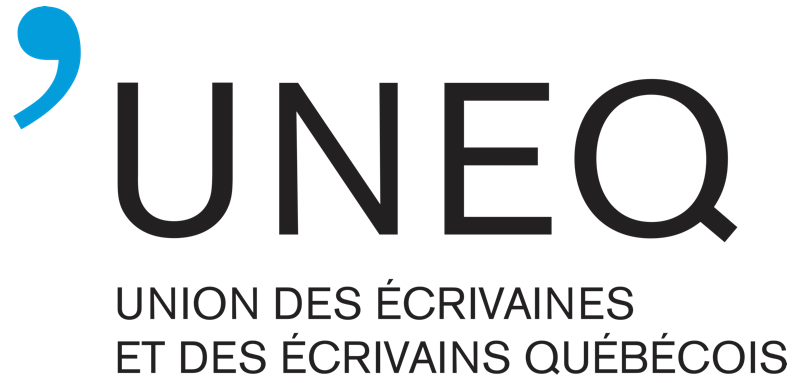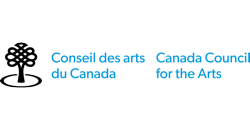Copyright Act: Ottawa Must Put an End to the Crisis
Montreal 25 April 2018 – Does the Government of Canada want to encourage Canadian cultural expression and promote creativity and a diverse culture? Or would it rather reduce the quality of writing to the lowest common denominator, and authorise the free use of all cultural content without paying the artists?
 On 24 April the Union des écrivaines et des écrivains québécois (UNEQ) argued before members of the House of Commons Standing Committee on Industry, Science and Technology, which is reviewing the Copyright Act, that the review of the Act should focus on these issues.
On 24 April the Union des écrivaines et des écrivains québécois (UNEQ) argued before members of the House of Commons Standing Committee on Industry, Science and Technology, which is reviewing the Copyright Act, that the review of the Act should focus on these issues.
Involving Canadian Heritage
With regard to copyright, Ottawa must first define a social project, argued the UNEQ. The Copyright Act should be part of a broad political vision with clear purposes, not only limited to technical considerations.
This is the UNEQ’s first recommendation in its report to the Committee. Do we want a culture that contributes to the quality of life of its citizens, their independence of thought and their understanding of the world? Or should we allow Hollywood, Silicon Valley and GAFA to take over and dictate to us their commercial laws by impoverishing local artists?
‘The UNEQ has requested that Canadian Heritage be closely involved in the review process of the Act and that the socio-economic rights of artists and writers be taken into account,’ says UNEQ President Suzanne Aubry. ‘We hope that our voice has been heard; we would like to see an active participation in the adoption of regulations by Canadian Heritage representatives.’
Professional Writers Are an Endangered Species
The amendments introduced to the Copyright Act are numerous, very vague exceptions, particularly in the education sector. A remuneration for artists and writers is not written into the Act.
The many exceptions have reduced the collective management income for writers and publishers by some $30 million since 2012.
There should be no exceptions in the law for the UNEQ except when access to the work is otherwise impossible. Exceptions to this rule should be rare.
To live by one’s pen has become an achievement in our country. The number of writers who are able to work without anxiety knowing that they will receive fair compensation for their creations is unusually low. In Canada, writers earn 27% less from their literary work than they did in1998. The average income they earned from their writing in 2015 was $12,879 and the median income was less than $5,000.
In Quebec, the figures are even more alarming. According to the latest major survey on the income of Quebecois writers, and based on the 2008 data, three out of four writers had to earn an income from other activities than writing in order to support themselves. In 2008, two-thirds of Quebecois writers received less than $5,000 from their creative writing. Only about 30 writers reported an income of $60,000 or more from their creative writing. The median income from creative writing was only $2,450.
The Copyright Act of 2012 puts an already uncertain profession at greater risk. It has threatened negotiations that have been successfully carried out for years by copyright collectives and destabilised the book industry.
‘The situation is not only serious. It is critical!’ says Laurent Dubois, Executive Director of UNEQ. ‘If Ottawa does not change its position, it is likely that writing as a profession will be limited to a few popular authors. This would deprive the public of cultural diversity, which is essential to a society that claims to be open.’
An Act that Undermines the Moral Rights of Authors
Moral rights, which give the creator the right to protect the way his/her work is used, have also suffered from the 2012 amendments. Exceptions for ‘non-commercial user-generated content’ have allowed the use of protected materials by copyright violators who wish to steal or even modify these materials to create a new work for digital dissemination and ‘non-commercial purposes’.
The loose wording of these exceptions allows anyone to create any new work, based on an earlier work, on the Internet (or elsewhere), and this includes through translation, adaptation, etc., and to completely ignore the notion of moral rights. Besides, many user-generated contents do not honour the spirit of the works used. Such exceptions abolish the author’s right to preserve the integrity of his/her work, which is the essence of his/her moral rights. They also encourage piracy.
Moreover, the user-generated content exception also denies suitable remuneration for the right holder’s works while benefitting third parties like YouTube, Facebook and other multinational corporations.
The UNEQ recommends that the legislator repeal the section on ‘non-commercial user-generated content’ and extend private copying royalties to new digital media.
⇒ The UNEQ report presented to the House of Commons Standing Committee on Industry, Science and Technology is available on the UNEQ website – click here.
About UNEQ
Founded in 1977, the Union des écrivaines et des écrivains québecois brings together more than 1,600 poets, novelists, playwrights, essayists, writers for young audiences and authors of scientific and practical works. The UNEQ works to promote and disseminate Québécois literature in Quebec, elsewhere in Canada and abroad, as well as to defend the socioeconomic rights of writers.
— 30 —
Source : Union des écrivaines et des écrivains québécois (UNEQ)
Contact: Jean-Sébastien Marsan, Director of Communications, 514 849-8540 ext. 225;
jsmarsan@uneq.qc.ca




